Philosophy
Sol Yurick writes radical novels, good ones, and loves to speculate on how culture gets inside people’s bones. In the early 1970s, Sol and I spend a lot of time musing over Monopoly, a game many leftists love to hate, others hate to love, and practically everybody plays. According to Shelly Berman, the comedian, “Monopoly evokes a unique emotion, the surge of thrill you get when you know you’ve wiped out a friend.” But what else is going on as we accumulate property and scheme how to beggar our neighbors? Are we simply expressing some atavistic urge for power, or tuning in, consciously or unconsciously, to the attitudes that are most highly prized in our business-oriented society? | more…
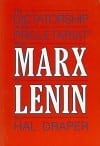
Could Lenin, Trotsky, Kautsky, and other prominent Marxists have misunderstood what Marx meant by the phrase “dictatorship of the proletariat”? In this engrossing study, Hal Draper strips away layers of misinterpretation to show that they did indeed misunderstand, and then proceeded to build elaborate ideological constructs on this warped base. | more…
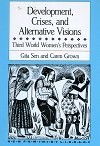
This book synthesizes and analyzes three decades of economic, political, and cultural policies and politics toward third world women. Focusing on the impact of the current global economic and political crises — debt, famine, militarization, and fundamentalism — the authors show how, through organization, poor women have begun to mobilize creative and effective development strategies to pull themselves and their families out of immiserating circumstances. | more…
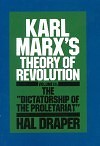
In this third volume of his definitive study of Karl Marx’s political thought, Hal Draper examines how Marx, and Marxism, have dealt with the issue of dictatorship in relation to the revolutionary use of force and repression, particularly as this debate has centered on the use of the term “dictatorship of the proletariat.” Writing with his usual wit and perception, Draper strips away the layers of misinterpretation and misinformation that have accumulated over the years to show what Marx and Engels themselves really meant by the term. | more…
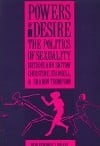
This provocative anthology brings together a diverse group of well-known feminist and gay writers, historians, and activists. They are concerned not only with current sexual issues — abortion, pornography, reproductive and gay rights — but they also raise a host of new issues and questions: How, and in what ways, is sexuality political? Is the struggle for sexual freedom a complement to other struggles for liberation, or will it detract from them? Has the sexual revolution diminished or enriched the lives of women? | more…
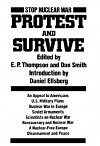
Protest and Survive is a powerful gift to the growing American movement from European Nuclear Disarmament (END), which E.P. Thompson helped to found, drafting the mobilizing documents. The book originated as a reaction to “Protect and Survive,” a take-cover pamphlet prepared in 1980 by British civil defense. The volume contains historian E.P. Thompson’s “A Letter to America,” and 11 other essays exploring the arms race, nuclear war, military bureaucracy and the prospects for peacemaking. | more…
This classic collection of essays by E.P. Thompson, one of England’s most renowned socialist voices, remains a staple text in the history of Marxist theory. The bulk of the book is dedicated to Thompson’s famous polemic against Louis Althusser and what he considers the reductionism and authoritarianism of Althusserian structuralism. In lively and erudite prose, Thompson argues for a self-critical and unapologetically humanist Marxist tradition. Also included are three essays of considerable importance to the development of the New Left. | more…
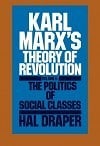
This is the second installment of Hal Draper’s exhaustive and incomparable treatment of Marx’s political theory, policy, and practice. In forceful and readable language, Draper ranges through the development of the thought of Marx and Engels on the role of classes in society. | more…
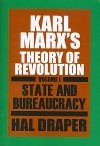
Volume I of Hal Draper’s definitive and masterful study of Marx’s political thought, which focuses on Marx’s attitude toward democracy, the state, intellectuals as revolutionaries, and much, much more. | more…
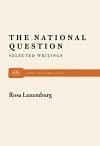
Provocative writings on the question of national self-determination and its relationship with socialism. | more…
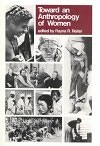
“This book is a must for those who would follow the Marxist-feminist argument. Most of the authors are developing their arguments within the general outline of Marxist theory, yet their work here exposes some of the tensions and conflicts within that same theory. This is certainly the stuff of dialectics!” — Contemporary Sociology: A Journal of Reviews | more…
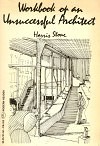
“As a socialist, Mr. Stone explains in terms that architects can understand and with examples which architects know from their own experiences, what it is to be dedicated to the Left in a world dedicated to the Right, to the Centre or to the self. He explains how producers of raw materials and products are able to influence public action in their interests rather than that of the community in the name of progress, renewal, slum clearance, and the American way-of-life… His drawings are a joy. It is clear that Mr. Stone is unsuccessful not in his terms but in ours because he has refused to be a corporate spear-carrier.” — The Canadian Architect | more…









